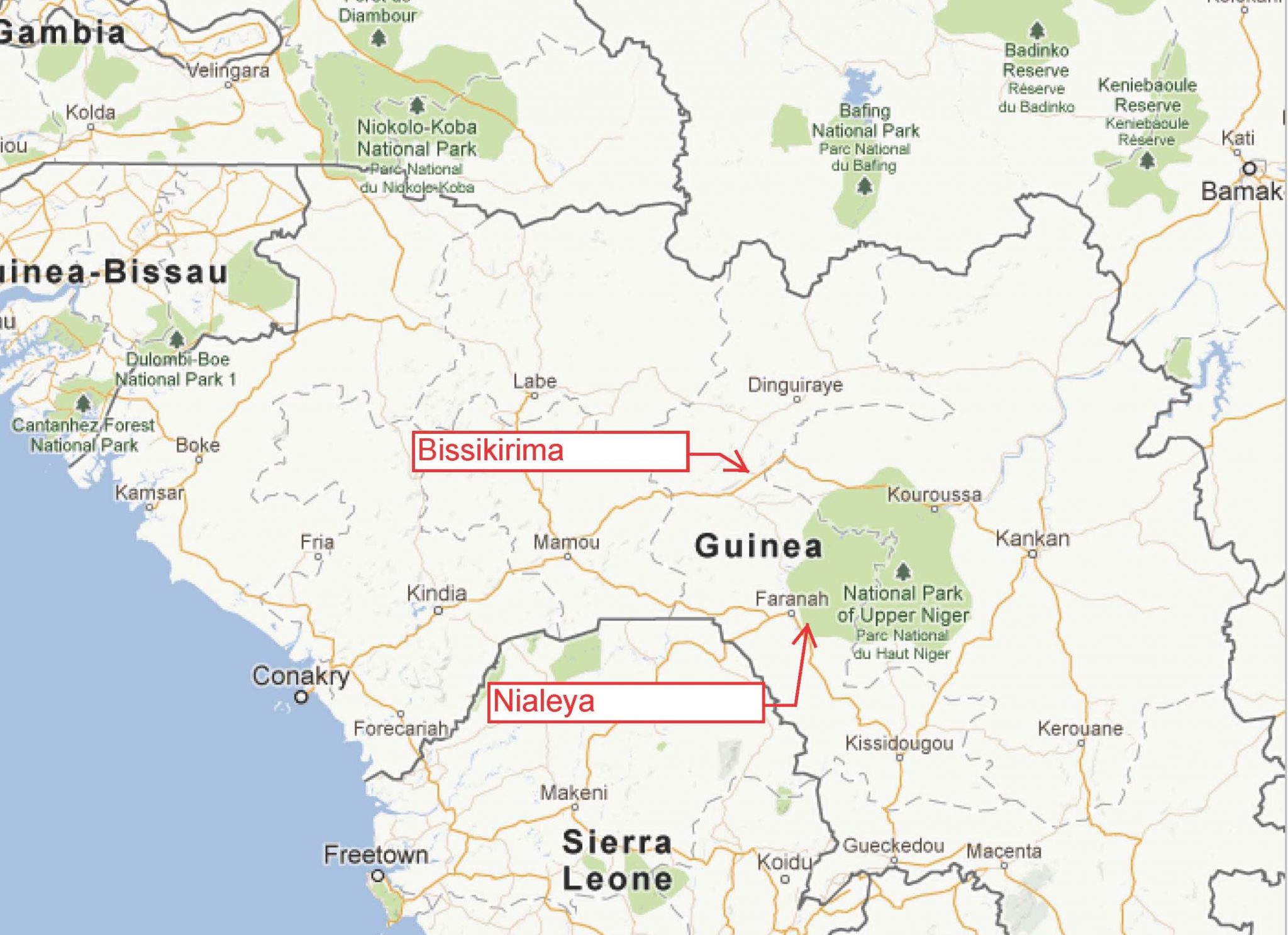The Shepherds of Guinea-Conakry
Why is improved goat and sheep production in Guinea important? The average protein intake in Guinea is 5.9 g in contrast to the standard American diet of 101.9 grams for males and 70.1 grams for females (National Health and Nutrition Survey). This low level of available protein makes goat and sheep production an important agriculture focus of expansion in countries such as Guinea. Although there are many goats and sheep scavenging the countryside they are not bred or fed with a focus on improving genetic capacity, household income nor as a regular source of protein in the diet. (Note: in picture on right a chicken is provided as a gift to me at the end of the training series. This is a valuable gift from a protein poor village).
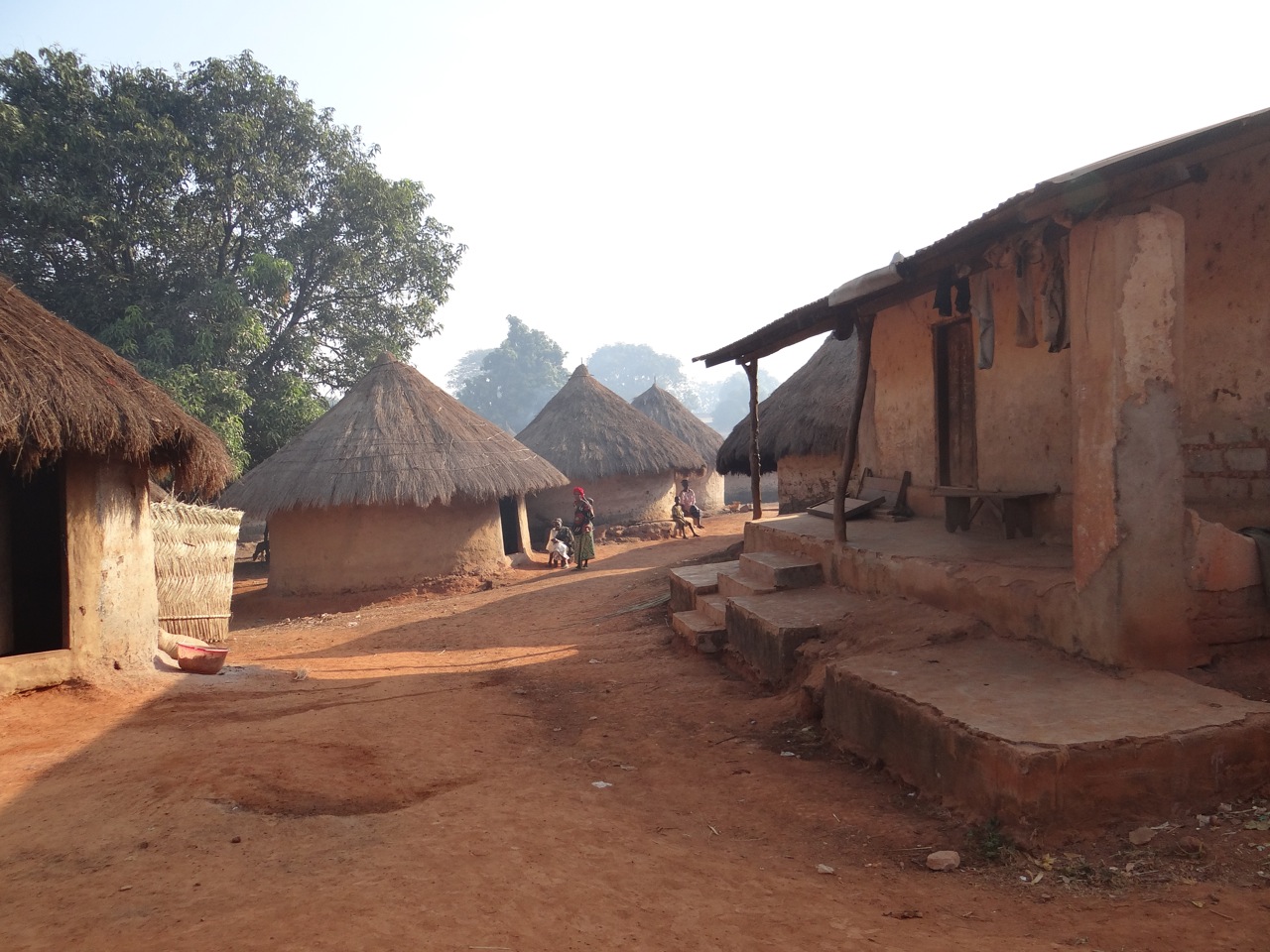
Small but important changes in livestock breeding can increase animal production by 300% without resorting to the industrial farming approach along with choosing the most appropriate animals for the environment such as more small ruminants in dry lands. Animal products provide a wide range of dense nutrition options to counter vitamin deficiencies and low protein and calorie diets. If low resource farmers cannot grow a balanced diet their families are unlikely to eat a balanced diet as purchasing nutrition rich food or vitamin supplements is not common nor readily available. In the U.S., with diverse options available, the value of meatless diets can be debated. As stated by Jimmy Smith, director general of the International Livestock Research Institute (ILRI), Nairobi, Kenya (The Economist, 2/23/2015):
Even a small daily portion of animal protein—a piece of meat the size of a deck of cards, for example—can change the lives of the world’s one billion undernourished people and the two billion vulnerable to food shortages. Such a modest amount can help end the maternal malnutrition that contributes to an estimated 800,000 infant deaths a year and the child undernutrition that contributes to nearly half of all deaths of children under-five worldwide.
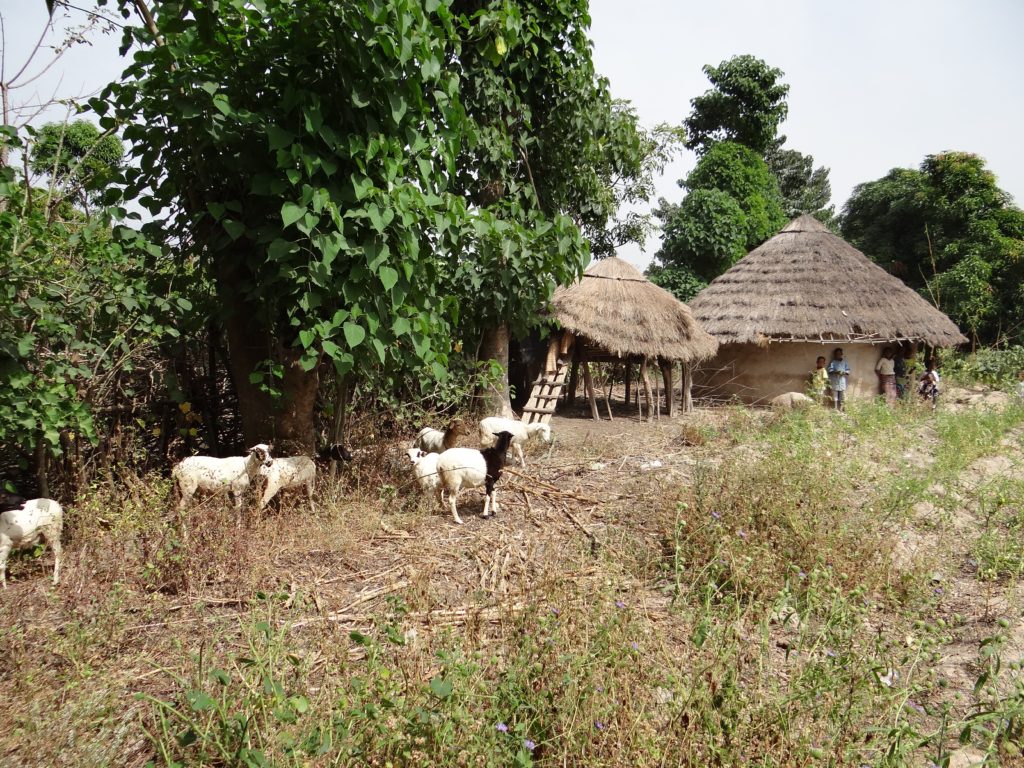
Sheep and goats are especially valuable in environments with long dry seasons. They can turn native plants and grasses that humans cannot digest into readily available protein. In regions where rainfall is scarce and unpredictable much of the year the sheep and goats are able to sustain themselves and the human population when provided adequate supplementation. Examples of feeds that do not compete with valuable human foods include properly dried and stored peanut greens, legume tree leaves, and crop residues. These forages can be digested by ruminants, turned into protein by their specialized multiple stomachs, with low impact on the local environment. Whereas cattle, also important, have higher nutrition, water requirements, along with higher initial financial investment.
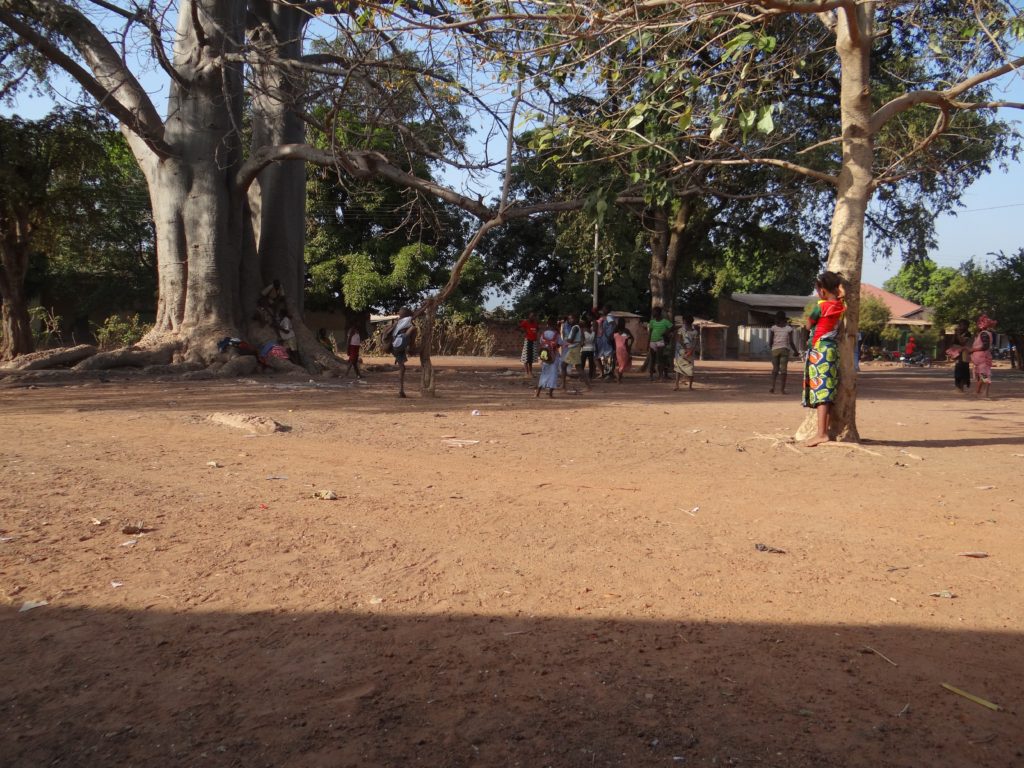
The desert is descending on this region. Although the people of Nialeya have a tradition of forest hunting, the hunting area has been reduced and wild game has been depleted. Additional sources of protein need to be utilized to increase the nutrition of growing children and adults. Adults generally ate 1 meal per day at approximately 1 p.m. A typical meal is locally grown rice with cassava or sweet potato greens. Rice is a good source of energy and greens are highly nutritious but they not an adequate source of protein. In the pictures below two children in the village of Bissikirima prepare cassava greens for the evening meal. This is a common meal along with some fresh fruit that grows readily in the countryside.

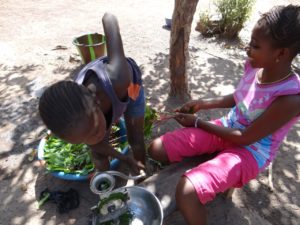
The small farmers and villagers were warm and welcoming. One group of young men walked 10 km without breakfast to be at the training on time. Guinea is a lovely country full of oranges, mangoes, pineapples, multiple varieties of bananas and peanuts. It is roughly the size of the England, on the western coast of Africa. The Ivory Coast, Guinea-Bissau, Liberia, Mali, Senegal and Sierra Leone share its borders. Guinea’s mountains are the source of the Niger river, the 3rd largest river in Africa, as well as numerous other rivers. As part of a food security initiative Judy provided trainings on goat and sheep nutrition for small farmers and hunters near the villages of Bissikirima and Nialeya (Dec 2012).
